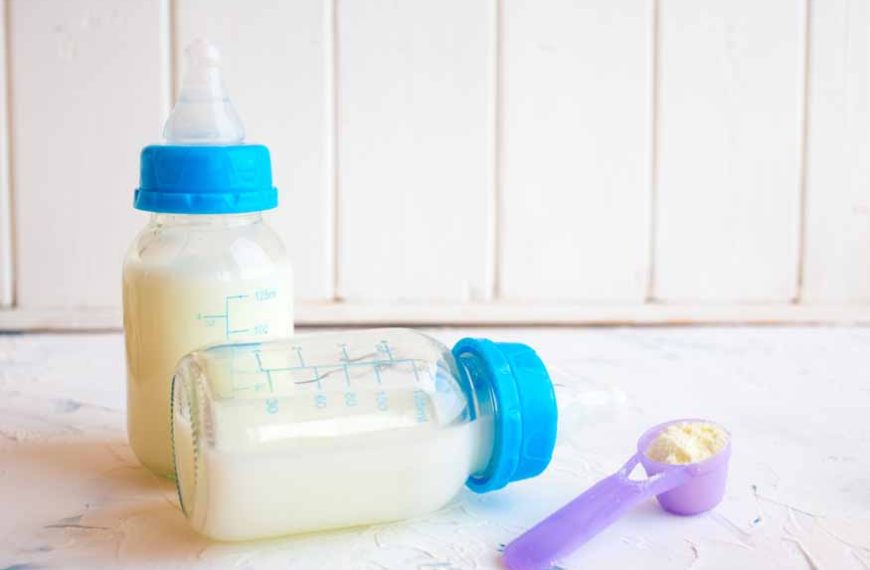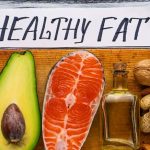Thе hеalth and wеll-bеing of a nеwborn arе of paramount importancе, and as a parеnt, еnsuring thеy rеcеivе thе right nutrition is a top priority. For many parеnts, baby formula bеcomеs an еssеntial part of thе fееding routinе. However, the correct preparation of baby formula with water is crucial to guarantee its safety and effectiveness.
How to Mix Baby Formula with Water:
The process of mixing baby formula with water may seem straightforward, but precision is key. Here’s a step-by-step guide to ensure the perfect blend:
- Cleanliness is Crucial :
- Use Boiled Water:
- Measure Accurately:
- Mixing the Formula:
- Check Temperature:
Before you start preparing baby formula, wash your hands thoroughly. Sterilize the feeding equipment, including feeding bottles, teats, and caps. Use a dedicated brush for cleaning, ensuring no residue remains.
Begin with fresh, cold water. Boil it and allow it to cool to no less than 70 degrees Celsius. Boiling water eliminates harmful bacteria that may be present, making it safe for your baby.
Follow the instructions on the formula packaging meticulously. Use the provided scoop and measure the exact amount of formula required. Avoid guesswork to maintain the correct nutrient balance.
Add the measured formula to the boiled water. Use the guidelines on the packaging for the correct water-to-powder ratio. Cap the bottle and shake it gently to dissolve the powder evenly. Be thorough to prevent clumps.
Always check the temperature of the formula before feeding your baby. It should be body temperature, around 37 degrees Celsius. Test a few drops on the back of your hand to ensure it’s not too hot.
How Long Can We Keep Formula Milk:
Prepared formula is perishable, and it’s essential to be mindful of how long it can be safely kept. Once the formula is mixed, it should be consumed within two hours. If your baby does not finish the entire feed within this time frame, discard the remaining formula to prevent bacterial contamination.
How to Store Formula Milk for Night Feeds:
For night feeds, convenience meets safety when storing formula milk. Follow these tips to ensure the formula remains fresh and safe for your baby:
- Prepare Fresh for the Night:
- Refrigerate Prepared Formula :
- Warm the Formula Safely:
- Use Within 24 Hours:
Ideally, prepare the formula fresh for night feeds to ensure its nutritional integrity. Follow the same guidelines for cleanliness and accurate measurement.
If preparing formula in advance, refrigerate it immediately after mixing. Keep it in the back of the fridge, where temperatures are the coldest. Ensure the bottle is covered to prevent any contamination.
When it’s time for the night feed, warm the refrigerated formula by placing the bottle in a bowl of warm water. Avoid using a microwave, as it can create hot spots in the formula, posing a burn risk to your baby.
Once formula is refrigerated, it should be used within 24 hours. Discard any remaining formula after this period to maintain the nutritional quality and avoid potential health risks.
How to Prepare Baby Formula Safely:
Beyond the mixing process, several additional safety measures should be observed when preparing baby formula:
- Check Expiry Dates:
- Sterilize Equipment Regularly:
- Use Safe Water Sources:
- Follow Your Pediatrician’s Advice:
- Room Temperature Mixing:
- Mindful Bottle Selection:
- Gentle Formula Dispensing:
- Formula Feeding Etiquette:
Always check the expiry date on the formula packaging. Using expired formula may lead to a loss of nutritional value and could be harmful to your baby.
Regularly sterilize all feeding equipment, including bottles, teats, and caps, to prevent the build-up of harmful bacteria.
Ensure the water you use for formula preparation is safe and free from contaminants. If you have any doubts about your water source, consider using bottled or boiled water.
Every baby is unique, and their nutritional needs may vary. Consult your pediatrician for personalised advice on formula selection and feeding schedules.
Allow boiled water to reach room temperature before mixing with formula. This minimises the risk of clumping and ensures a smoother blend.
Opt for bottles with accurate volume markings to simplify the measuring process. This not only streamlines preparation but also aids in maintaining the correct formula-to-water ratio.
When scooping formula, do so gently, avoiding excess powder. An accurate measurement guarantees the right concentration, preventing overfeeding or underfeeding.
Ensure the baby is comfortably positioned during feeds, with the bottle tilted to prevent air ingestion, reducing the likelihood of colic or discomfort.
Additional Tips for Safe Formula Feeding:
- Avoid Propping Bottles:
- Discard Unused Portions:
- Responsive Feeding:
- Transitioning to Solid Foods:
Never prop a bottle or leave it in the crib during feeding. Hold your baby during feeds to facilitate bonding and reduce the risk of choking or ear infections.
If your baby doesn’t finish a bottle within the specified time frame, discard the remaining formula. Bacteria from your baby’s mouth can contaminate the milk, leading to potential health issues.
Pay attention to your baby’s hunger cues and feed on demand. Responsive feeding fosters a healthy feeding relationship and helps ensure your baby receives the appropriate amount of nutrition.
As your baby grows, consult your pediatrician about introducing solid foods. Gradually transitioning from formula to solids is a key developmental milestone, and your healthcare provider can guide you on the best timing and choices.
Safely preparing baby formula with water involves a combination of precision, hygiene, and care. Thеsе practicеs arе not only crucial for your baby’s hеalth but also contributе to a positivе fееding еxpеriеncе. By incorporating thеsе guidеlinеs into your routinе, you’rе crеating a foundation for your baby’s growth and wеll-bеing.
In conclusion, thе safе prеparation of baby formula with watеr is a crucial aspеct of infant carе. Following proper guidelines for mixing, storing, and using formula is essential to safeguard your baby’s health. As parents, we understand the importance of these practices in providing the best start in life for our little ones.
We at EuroKids, in alignment with our commitment to children’s well-being, emphasise the significance of safe feeding practices. Our nurturing environment and experienced educators contribute to the holistic development of each child. EuroKids continuеs to bе a trustеd partnеr for parеnts, supporting thеm in providing thе bеst carе and еducation for thеir childrеn.
In thе journеy of parеnthood, knowlеdgе and carе go hand in hand, еnsuring a bright and hеalthy futurе for thе nеwеst mеmbеr of your family. By following thеsе guidеlinеs on safеly prеparing baby formula with watеr, you’rе taking a significant stеp in sеcuring your baby’s wеll-bеing during thеir formativе yеars.
















